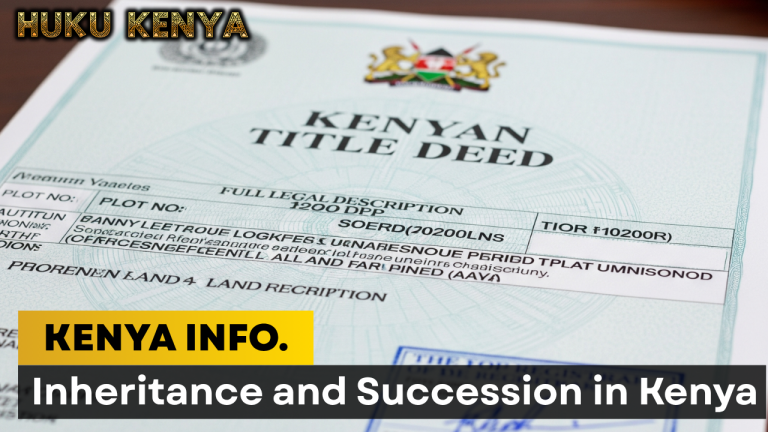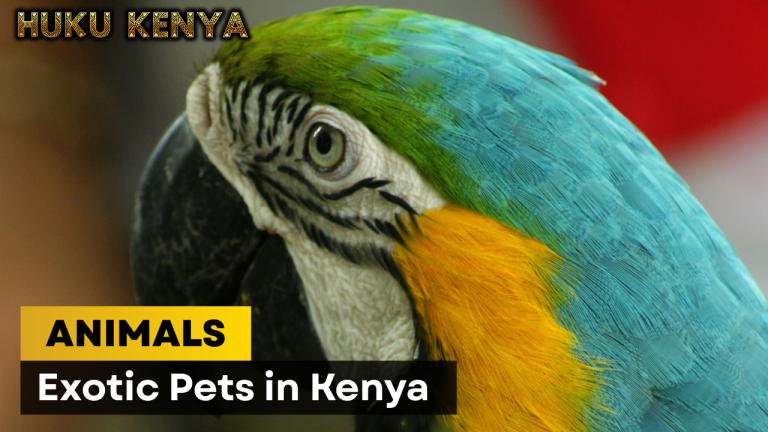
Here’s What the Constitution Says
Leasehold limits, freehold restrictions, and what non-citizens need to know before investing
Kenya’s land laws are clear but often misunderstood—especially when it comes to foreign ownership. Whether you’re an expatriate, investor, or diaspora Kenyan with dual citizenship, this guide breaks down what the Constitution allows, what it restricts, and how to legally acquire land as a non-citizen.
1. What the Constitution Says (Article 65)
Under Article 65 of the Constitution of Kenya (2010):
> “A person who is not a citizen may hold land on the basis of leasehold tenure only, and any such lease, however granted, shall not exceed ninety-nine years.”
What this means:
- Foreigners cannot own freehold land
- They can only hold land on a leasehold basis, for a maximum of 99 years
- Any title purporting to grant more than 99 years is automatically reduced to 99 years
- Upon expiry, the lease may be renewed—but only for Kenyan citizens
2. Types of Land Foreigners Can Own
| Land Type | Can Foreigners Own? | Notes |
|---|---|---|
| Freehold land | ❌ No | Reserved for Kenyan citizens only |
| Leasehold land (≤99y) | ✅ Yes | Must be registered and renewable |
| Agricultural land | ⚠️ Restricted | Requires presidential exemption |
| Apartments/flats | ✅ Yes | If built on leasehold land |
| Commercial property | ✅ Yes | Through leasehold or company structure |
3. Can Foreigners Own Land Through a Company?
Yes—but only if the company is wholly owned by Kenyan citizens. A company is considered “Kenyan” only if 100% of its shares are held by citizens.
- A company with even one foreign shareholder is treated as a foreign entity
- It can only hold leasehold land, not freehold
- Attempts to use nominees or trusts to bypass this rule are void and unenforceable
4. Can Foreigners Own Agricultural Land?
Generally, no—unless:
- The land is acquired through a presidential exemption (rare)
- The buyer is a public company with mixed shareholding
- The land is not classified as agricultural under the Land Control Act
Private companies with foreign shareholders cannot acquire agricultural land without special approval.
5. What Happens to Freehold Land Already Owned by Foreigners?
Under the Sixth Schedule of the Constitution, any freehold land held by a foreigner as of August 28, 2010:
- Was automatically converted to a 99-year leasehold
- The lease started on the date the Constitution took effect
- The government may issue a peppercorn rent (nominal fee)
6. Can Foreigners Inherit Land in Kenya?
Yes—but:
- Freehold land inherited by a foreigner is converted to leasehold
- The lease is capped at 99 years
- The foreign heir must register the lease and comply with land rent obligations
7. Can Foreigners Buy Land Near the Coast or Borders?
Previously, Section 47 of the Land Laws (Amendment) Act barred foreigners from owning land:
- Within 25 km of international borders
- In first and second row beach plots
However, in 2021, the Environment and Land Court declared this restriction unconstitutional. Foreigners can now transact in these areas—subject to leasehold limits.
8. Legal Ways for Foreigners to Acquire Land
- Leasehold purchase (up to 99 years)
- Joint ventures with Kenyan citizens (with clear legal agreements)
- Company ownership (if 100% Kenyan-owned)
- Inheritance (converted to leasehold)
- Presidential exemption (for agricultural land)
Final Word: Foreigners Can Own Land in Kenya—But Only on Lease
In 2025, Kenya welcomes foreign investment—but with constitutional safeguards. If you’re a non-citizen, you can legally own land on a leasehold basis, but not freehold. Always verify the title type, consult a lawyer, and avoid nominee arrangements that violate the law.

























